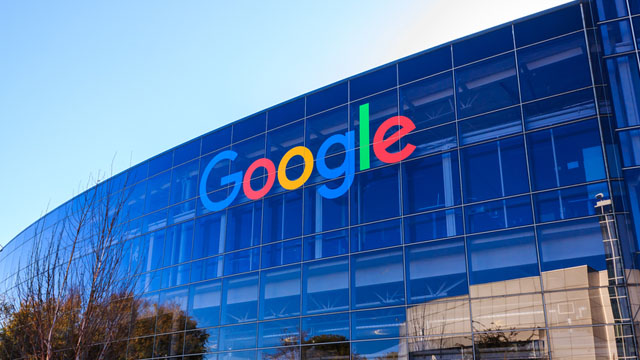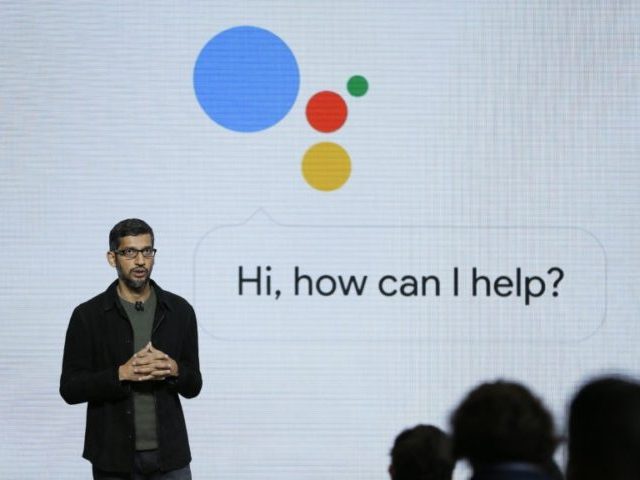Knowledgeispower
Ah I love the smell of missile spam in the morning
The title says it all folks, begun the comeuppance of big tech has
Here's a revelant article for the topic
Here's a revelant article for the topic

A friend of mine posted the suit on WhatsApp(all 64 pages of it). Not being a lawyer like he is, I won't be able to understand too much of it, but a quick scan of it tells me that, while the language for the claims would seem to be quite mild for a non-lawyer;
- 'Enter structural relief as needed to cure any anticompetitive harm'; and
- 'Enjoin Google from continuing to engage in the anticompetitive practices described herein and from engaging in any other practices with the same purpose and effect as the challenged practices'
, as stated in the section pertinent to what the plantiffs request from the Court, does not bide well for Google.
Is it Operation Dragonfly or Project Dragonfly?

As a practical matter, content moderation at scale is impossible to do perfectly. With half the world screaming at Twitter and Facebook to take down “dangerous” content instantaneously and the other half indignant about being “censored,” there’s little room for these platforms to make informed and consistent decisions in real time. Furthermore, there could never be such thing as an absolutely objective arbiter of bias or accuracy to write and enforce the rules. (And even if there were, he or she sure as heck wouldn’t be a politician.) There is no way to avoid some amount of bias or inaccuracy if content moderation is going to occur. If content moderation is going to be prohibited, Facebook will be “Pornbook” within 24 hours.
So what to do instead?
Back to Justice Brandeis’s point about more speech: The solution to content-moderation bias on platforms isn’t pretending it can be prevented, but instead to let competition do what it does. There will come a point when bias in moderation will drive subscribers to other platforms, and, for that matter, encourage entrepreneurs to establish platforms where that bias doesn’t exist.
Its a terrible take because it takes a wide detour around the real issue.Here's a real bad take on the whole thing:

Beware the Regulatory Crackdown on Big Tech | National Review
Legislators ought to incentivize entrepreneurs to innovate, and stay out of the way.www.nationalreview.com
A) The authors clearly didn't read the text of Section 230, because even Ajit Pai's rumored regulations are about forcing everyone to be transparent in their moderation policies, and the entire thing was designed around getting smut off of most websites to begin with and B) these people clearly did not witness the growth of Big Tech first hand, because if they did, they'd know that there've been tons of competitors to Google, Facebook, Twitter, Youtube, etc..., but most of them have either died or been marginalized into being alternatives you only use because you're either banned off of those platforms, or in danger of getting banned.
Oh, and C) it takes a fuckton of money and specially trained personnel to get these things off the ground, so there's a super high barrier to entry that prevents newcomers from getting into the field, even before we add possible regulatory hurdles.
(If someone has a National Review account and wants to post this in their comments, feel free to do so.)

They certainly are. But will they get the job done in time?If Section 230 is repealed then will it even affect these companies adversely?
I think people are acting on the belief that without the ability to monitor all the posts that the websites would collapse under lawsuits. But Google for one and I'm sure Facebook and Twitter are all working on perfecting AI algorithms to help them do just that.
The SJW aspect has 2 sides, not just censoring the right, they also give leeway, protection if not outright support to their own.If the companies were just interested in money then there wouldn't be a problem. Its the fucking social justice warrior aspect thats the problem and thats a result of the people in charge of it. They're already billionaires and want to 'change the world', one less Conservative at a time.
That would be ideal, but if we can't have the ideal...Section 230 should be kept for certain companies which meet certain criteria so as to encourage competition to start up and rival these other companies.
If Section 230 is repealed then will it even affect these companies adversely?
I think people are acting on the belief that without the ability to monitor all the posts that the websites would collapse under lawsuits. But Google for one and I'm sure Facebook and Twitter are all working on perfecting AI algorithms to help them do just that.
If the companies were just interested in money then there wouldn't be a problem. Its the fucking social justice warrior aspect thats the problem and thats a result of the people in charge of it. They're already billionaires and want to 'change the world', one less Conservative at a time.
Section 230 should be kept for certain companies which meet certain criteria so as to encourage competition to start up and rival these other companies.
Algorithms will either catch so much that the site is ruined, or never catch enough to protect them from getting buried in lawsuits.
Did you see the jokes on Tumblr after that site banned porn, about how the pron-banning bot kept banning things like pictures of sand?
Facebook, Youtube, and Twitter, all have hundreds of thousands to millions of new instances of content posted every day. You cannot create an algorithm up to the task of sifting through all of that sufficiently quickly and effectively, and certainly cannot do such a thing fast enough to matter.
The fact that they have billions of dollars, means that even without ideological enemies being part of the issue, opportunists looking for multi-million dollar settlements will tear them to shreds.
Losing platform protection is an inescapable lose condition for the social media giants, pretty much without exception.
